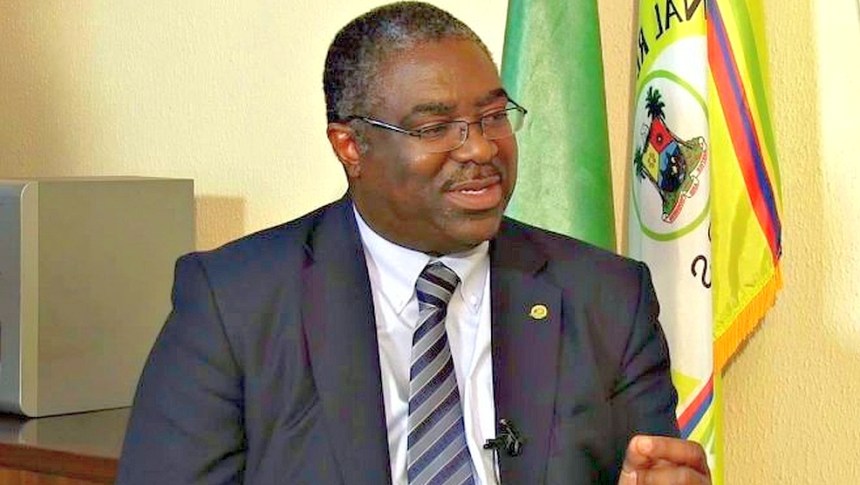Business News
JTB: From 10m in 2015, Nigerian taxpayers soon to hit 45m

The number of taxpayers in Nigeria has increased from 10 million in 2015 to 14 million in 2017, to 19 million in 2018 and about to hit 45 million in 2019.
According to the Joint Tax Board (JTB) led by Tunde Fowler, chairman, Federal Inland Revenue Service (FIRS), Nigerian taxpayer roll will soon hit 45 million.
The board says Fowler’s FIRS has fostered an uncommon collaboration between the States Internal Revenue Services, SIRSs and the FIRS resulting in several collaborative projects in the last five years.
Oseni Elamah, executive Secretary of JTB, said in Abuja on Monday, that the ongoing integration of databases will fetch the nation a total of 45 million individual and corporate taxpayers.
Elamah said this on Monday when he presented a report on the new Taxpayer Identification Number (TIN) Registration System to Fowler, in Abuja.
Elamah also said that the JTB has completed the building of a new TIN Registration System which is an integration of TIN numbers of various organisations in Nigeria, adding that the growth of the taxpayers’ database is a major flank of the goals of the JTB in collaboration with the apex tax authority, the FIRS.
“When the integration of the new TIN Registration System is launched, it will afford prospective taxpayers the opportunity to register for tax from the comfort of their homes and print their registration certificate” Fowler said.
Fowler expressed happiness over the completion of the new TIN Registration System and said that the system would encourage transparency, efficiency, and convenience in tax administration in Nigeria.
“I congratulate the JTB for finalising the new TIN Registration System in record time. We now have a consolidated database for all taxpayers in Nigeria.
“If you (a taxpayer) go to any other country or visit another state in Nigeria and they want to check your tax status, what this means is that they can check your tax status by a touch of a button. We want to assure all taxpayers that we are ready to serve them more with technology, convenience and accountability,” Fowler added.
Benefits of the new TIN Registration system
Speaking on the benefits if the system, Elamah said: “State Revenue Authorities are expected to enjoy immense benefits from the new TIN System”.
“Among these are: Taxpayer Information Accessibility and Accuracy: the registration and recording of taxpayer information is one of the fundamental functions of tax administration and to a great extent, this will drive how other core administrative functions operate,” Elamah added.
“The timely and accurate collection and recording of basic identifying information of the taxpayer will permit the tax administrator to understand its taxpayer base, staff itself accordingly and to effectively plan other core administration functions. The existence of an accurate taxpayer database will inevitably lead to effective compliance programmes observation.
“The redesigned, development and deployment of a TIN system leverages on existing taxpayer data available from databases of multiple organisations like CAC (Corporate Affairs Commission, banks through BVN (Banks Verification Number), Identity Card Management Commission and other.
“It is a web-based solution with centralised management of all the various functions of the TIN registration system offering and accessible to authorised users of the system for reviews and approvals of registration requests, TIN certificate issuance and integration with relevant stakeholders.
“It makes possible integration and exchange of data with sister state Boards of Internal Revenue, FIRS and other third party organisations through web services”.
TAXPAYERS: From 10m to 45m?
According to JTB, there were 10,006,304 people registered for personal income tax purposes in all the states of the federation including the FCT as of 2015/6.
Out of this, about 4.6 million or 46 percent were registered with the Lagos State Internal Revenue Service (LIRS).
Updated data, quoted by Vice President Yemi Osinbajo shows that only 14 million economically-active Nigerians paid taxes in 2017 — a number which increased to 19 million as at May 2018.
Going by the latest disclosure from JTB, it is suggested that Nigeria’s taxpayers base will have increased by over 25 million in the when Nigeria eventually hits 45 million.
-
Society News3 years ago
Jamaican man beheads wife after finding out their 6 kids are not his
-
Society News5 years ago
EXCLUSIVE: The Complete Story of Dolapo Awosika, John Fashanu and Prophet Kasali Sex Mess
-
News2 years ago
Breaking: Ex-Police IG, Tafa Balogun Dies
-
News4 years ago
Pastor Osagie Ize-Iyamu, His Membership Of Secret Cult, And Other Issues Touching On His Public Credentials Examined by Barr. PATRICK I. BIOSE
-
News4 years ago
BREAKING: Ajimobi’s daughter-in-law blast Gov. Makinde, says gov can’t surpass ex-Oyo gov
-
News4 years ago
BREAKING: 2 arrested as NAF begins investigations into Tolulope’s death
-
News4 years ago
BREAKING: Police take over Edo House of Assembly as APC, Oshiomhole move to seize control
-
Crime4 years ago
Exclusive: Female Aide Fingered In Oko Oloyun’s Murder + Banking Transactions That Nailed Husband
Notice: Undefined variable: user_ID in /var/www/first2023/wp-content/themes/firstweekly/comments.php on line 48
You must be logged in to post a comment Login